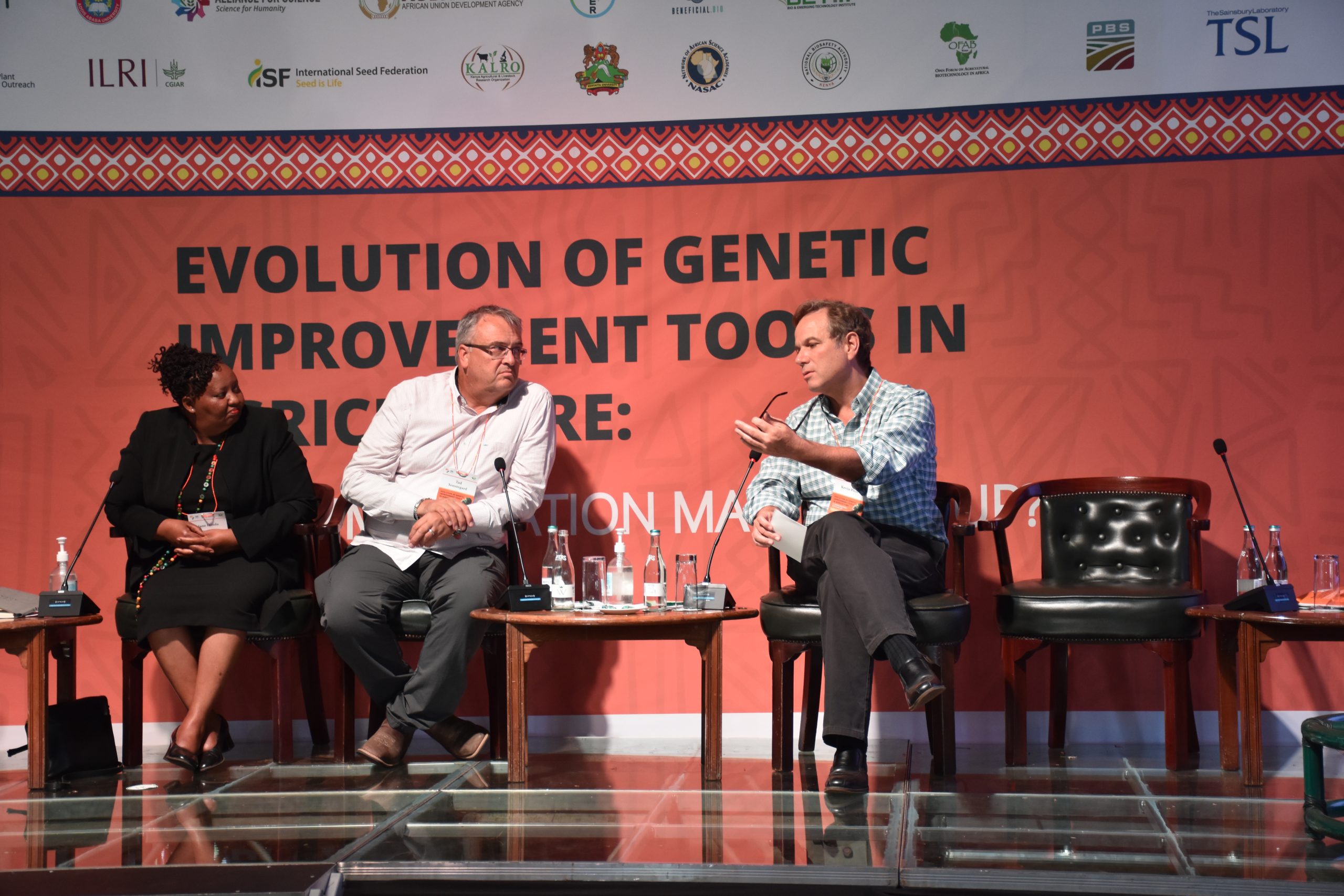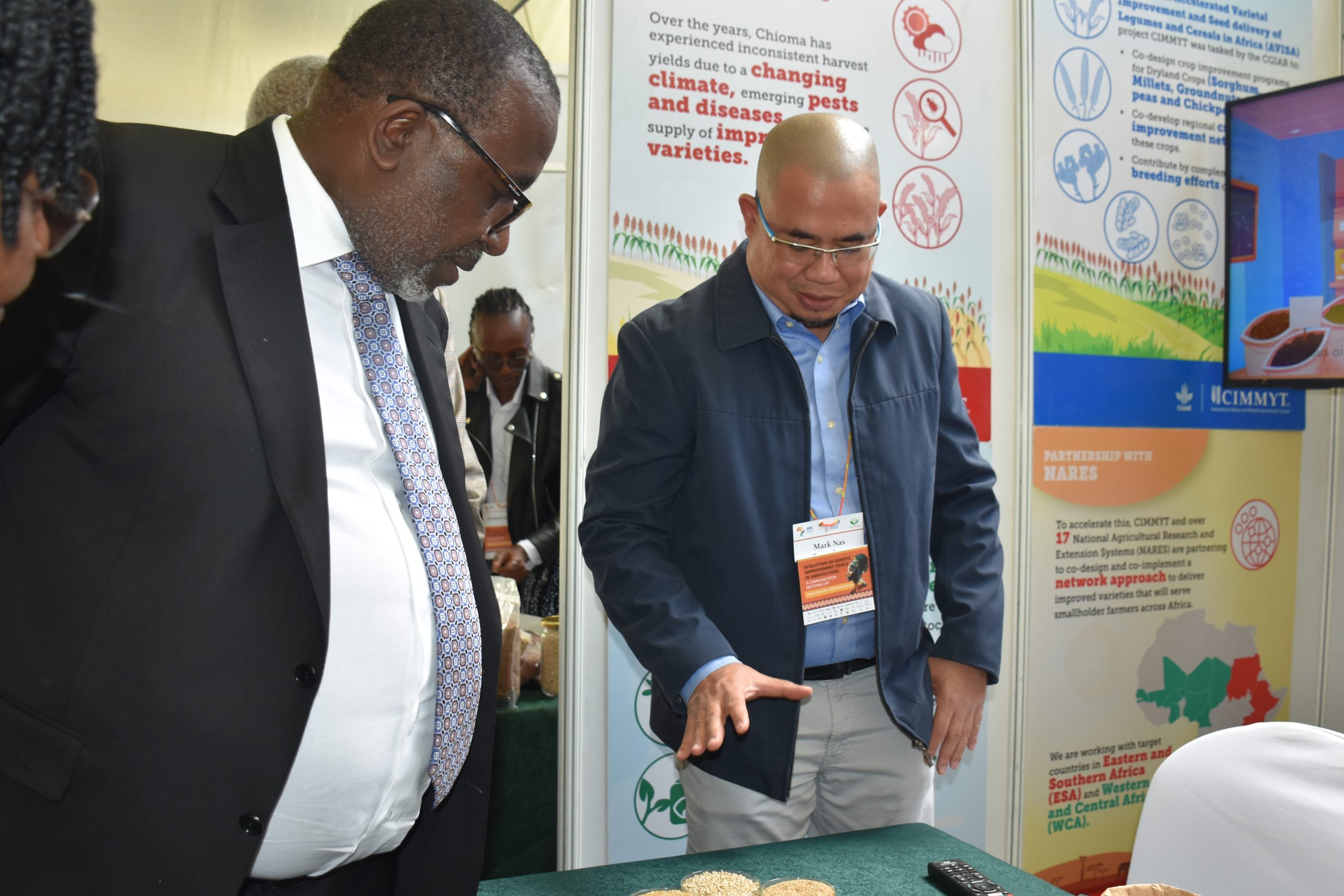The Africa Biennial Biosciences Communication (ABBC 2023) Symposium, held in Nairobi, Kenya, provided a platform for experts, scientists, policymakers and stakeholders to discuss the evolution of genetic improvement tools in agriculture and the critical role that communication plays in ensuring these advancements are aligned with societal needs. The theme of the symposium, “Evolution of Genetic Improvement Tools in Agriculture: Is Communication Matching Up?” sparked insightful discussions and revelations regarding the intersections of technology, communication and sustainability.
Biotechnology underpins sustainable agriculture by providing potential solutions that enable agricultural systems to better address underlying health, livelihood and nutrition challenges. The quest for innovative and tech-enabled options for sustainable agriculture offers valuable lessons contributing to long-term food security. For example, through the applications of genome editing technologies, nutritional enhancements and reduced reliance on agrochemicals are both possible.
A case study presentation by Kevin Pixley, director of the Dryland Crops Program (DCP) and interim director of the Global Wheat Program, “How will communication about new breeding tools impact the development of sustainable food systems and one health-focus on crop science,” detailed how communication plays a vital role in informing consumers and society at large about the positive impacts that new breeding tools can have by contributing to sustainable food systems.

Transparent communication builds trust and impacts consumers’ ability to make informed decisions regarding genome-edited or other products. “In order to communicate effectively, we need to be transparent and provide information that consumers are seeking,” Pixley said. “Understanding their questions and concerns is the first step.” He gave examples of communication challenges, discussed various levels of transparency and urged for proactive approaches to communicate the benefits of genetic improvement technologies. Pixley further pointed out that the credibility of the communicator plays a crucial role in shaping public perception and emphasized the importance of tailoring communication to different cultural contexts and audiences.
During the panel discussion, “Systems thinking toward sustainable food/feed supply and one health. What is the role of communication?” experts from various fields, discussed the interconnectedness of food systems, human and animal health, the environment and communication. Acknowledging the complexity of the interconnected food production and consumption cycle, Pixley suggested that a holistic approach is necessary and called for a paradigm shift towards a thriving agricultural ecosystem.
The discussions delved into the role of communication in promoting economic, social and environmental sustainability solutions. The dialogue revealed the importance of involving farmers, policymakers and development partners to ensure holistic solutions.
Miscommunication and misinformation were also addressed, with the speakers recognizing the need to address perceived risks and demonstrate the safety and benefits of genetic advancements. Also discussed was the importance of simplicity and tailored messaging for various stakeholders, including policymakers, farmers and consumers.
In conclusion, the panelists agreed that effective communication is essential to realize the potential benefits offered by biotechnologies.

At the sorghum festival, Pixley and the DCP team showcased CIMMYT’s efforts in sorghum breeding and genetic improvement. They underscored the collaborative work with NARES partners and emphasized the importance of co-designing, co-developing and co-implementing projects to ensure sustainability and shared ownership. “A successful program requires collaboration, sharing resources and building sustainable networks,” said Pixley. “Our efforts are driven by the collaboration of various stakeholders.” The symposium also witnessed CIMMYT showcasing millet and sorghum at the exhibition, where the DCP team engaged with many participants.
All these discussions demonstrated the critical role that communication plays in shaping the trajectory of genetic improvement tools in modern agriculture. Transparent, culturally sensitive and proactive communications are essential to achieve social license for novel technologies, such as genome editing, to contribute to sustainable food systems, improved farmers’ livelihoods and food security for farmers and consumers.

 Climate adaptation and mitigation
Climate adaptation and mitigation 